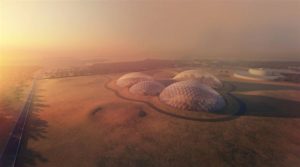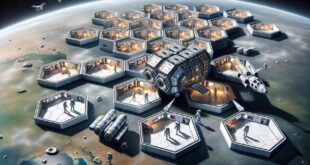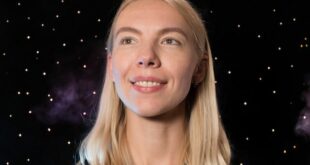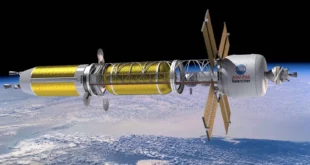
The UAE, represented by the Mohammed bin Rashid Space Centre (MBRSC) has launched the UAE Sirius Mission, in partnership with the Roscosmos Space Agency’s Scientific International Research In a Unique terrestrial Station (SIRIUS) analog at Russia’s IBMP Ground-based Experimental Complex, NEK, in Moscow.
This is part of the MARS 2117 Programme, which aims to build a human settlement on Mars within the next 100 years from its launch.
MBRSC invited researchers and undergraduate students in the UAE to submit their scientific researches on the effects of isolation and confinement on human psychology, physiology, and team dynamics. Selected researches from the UAE will participate in the analog, which aims to test the simulation of life on Mars. Those interested can fill out the application form and send it to [email protected] by Sunday, 10 November 2019.
Yousuf Hamad Al Shaibani, Director General of MBRSC, said, “His Highness Sheikh Mohammed bin Rashid Al Maktoum, Vice President, Prime Minister and Ruler of Dubai and His Highness Sheikh Mohamed bin Zayed Al Nahyan, Crown Prince of Abu Dhabi and Deputy Supreme Commander of the UAE Armed Forces, highlighted that the UAE’s next objective will be to reach the Red Planet. Launching the UAE Sirius Mission supports the country’s efforts to lead the global scientific to reach Mars in the coming decades, through the Mars 2117 Programme. The programme includes a 100-year plan involving leading international scientific research programmes to build the first human settlement on Mars by 2117.”
Al Shaibani highlighted that the UAE’s participation in this analog comes within the framework of MBRSC’s cooperation with space agencies and global research centres, as part of its strategy to contribute to preparing generations in the field of modern science, by encouraging innovation and scientific research in space and advanced science and technology. The analog contributes to implementing the UAE’s ambitious strategic plans in the field of space exploration and enhancing the role of advanced space technologies in finding solutions to the challenges facing humanity. It also aims to build national competencies that contribute to the development of the space sector as one of the new development sectors in the national economy.
Adnan Al Rais, Mars 2117 Programme Manager at MBRSC, highlighted that the analog mission, which will begin in 2020 for eight months, involves experiencing a simulation of the environmental and living conditions on Mars, while conducting behavioural studies to follow the scientific results and use them in international preparations for manned trips to the Red Planet. Participants in the analog mission are not allowed to leave from the laboratories equipped specifically for this task before completion, and will carry out ‘virtual’ tasks throughout that period. Moreover, communication with observers is done via communication devices, as if they are actually on Mars, to look into the effects of confinement and isolation on the human body.
Al Rais stressed that researchers, specialists, and undergraduate students in the UAE are welcome to participate by submitting their research studies. These research papers serve the objectives of the Mars 2117 Programme to prepare Emirati generations with a passion for scientific exploration and benefit from scientific experiments that address the challenges of food, water and energy security on Earth.
The UAE Sirius Mission is a Mars 2117 initiative and is funded by the ICT fund of the Telecommunications Regulatory Authority.
//WAM//Hazem Hussein//Hatem Mohamed//
 SpaceWatch.Global An independent perspective on space
SpaceWatch.Global An independent perspective on space




